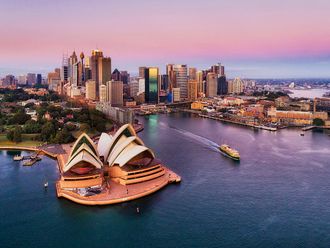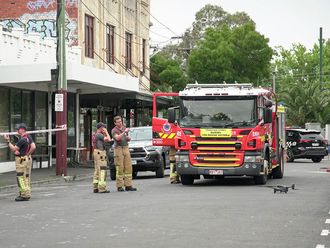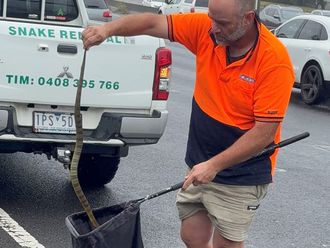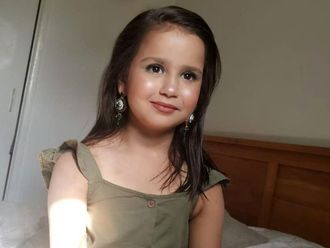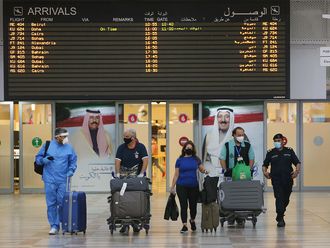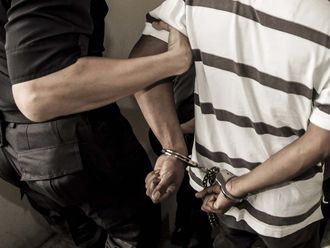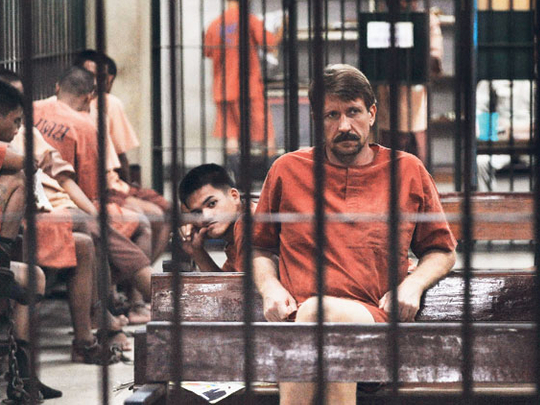
Bangkok: A Thai appeals court on Friday ruled to extradite suspected Russian arms smuggler Viktor Bout to the United States, effectively ending a more than decade-long chase for the man dubbed "The Merchant of Death".
The court ordered Bout's extradition within three months, overturning a lower court's ruling from August 2009.
Bout, a 43-year-old former Soviet air force officer, is reputed to be one of the world's most prolific arms dealers. He has allegedly supplied weapons that fueled civil wars in South America, the Middle East and Africa, with clients including Liberia's Charles Taylor and Libyan leader Muammar Gaddafi and both sides of the civil war in Angola.
Dressed in an orange prison uniform and shackled in leg irons, Bout stood after the verdict was announced. Tears welled in his eyes as he hugged his wife and daughter, who wept. The Russian said nothing to reporters before being led out of the courtroom and back to a Bangkok prison where court officials said he would remain until the extradition is processed.
Unfair decision
"This is the most unfair decision possible," his wife, Alla Bout, told reporters, speaking in Russian through a translator. "It is known the world over that this is a political case."
The ruling is a victory for the Obama administration, which said on Thursday it had summoned the Thai ambassador in Washington this week so that US officials could "emphasise that this is of the highest priority to the United States," according to State Department spokesman P.J. Crowley.
The head of a lucrative air transport empire, Bout has long evaded UN and US sanctions aimed at blocking his financial activities and restricting his travel. He has denied any involvement in illicit activities and claims he ran a legitimate business.
The 2005 Nicolas Cage film, The Lord of War, is widely believed to be modeled after Bout's life.
His arrest by Thai authorities in March 2008 landed Bout in prison for the first time and set off a legal tug-of-war between the US and Russia.
Experts say Bout has been useful for Russia's intelligence apparatus, and Moscow does not want him going on trial in the United States.
Bout's arrest at a Bangkok luxury hotel was part of an elaborate sting in which US agents posed as arms buyers for the Revolutionary Armed Forces of Colombia, or FARC, which Washington classifies as a terrorist organisation.
After his arrest, Bout was indicted in the US on four terrorism-related charges that include conspiring to sell millions of dollars worth of weapons to FARC, including more than 700 surface-to-air missiles, thousands of guns, high-tech helicopters and airplanes outfitted with grenade launchers and missiles.
The US indictment also charged Bout with conspiring to kill Americans, conspiring to kill US officers or employees, conspiring to provide material support to terrorists. The Russian faces a maximum penalty of life in prison if convicted.
In August 2009, the Bangkok Criminal Court rejected an extradition request. It said that Thailand considers FARC a political movement and not a terrorist group, and that extradition under a Thai-US treaty could not be granted for a political offence.
But the appeals court disagreed, saying yesterday that under Thai law the charges against Bout were considered criminal, not political.
Bout's lawyer Lak Nittiwattanawichan called the extradition politically motivated and said he would try to keep fighting.


